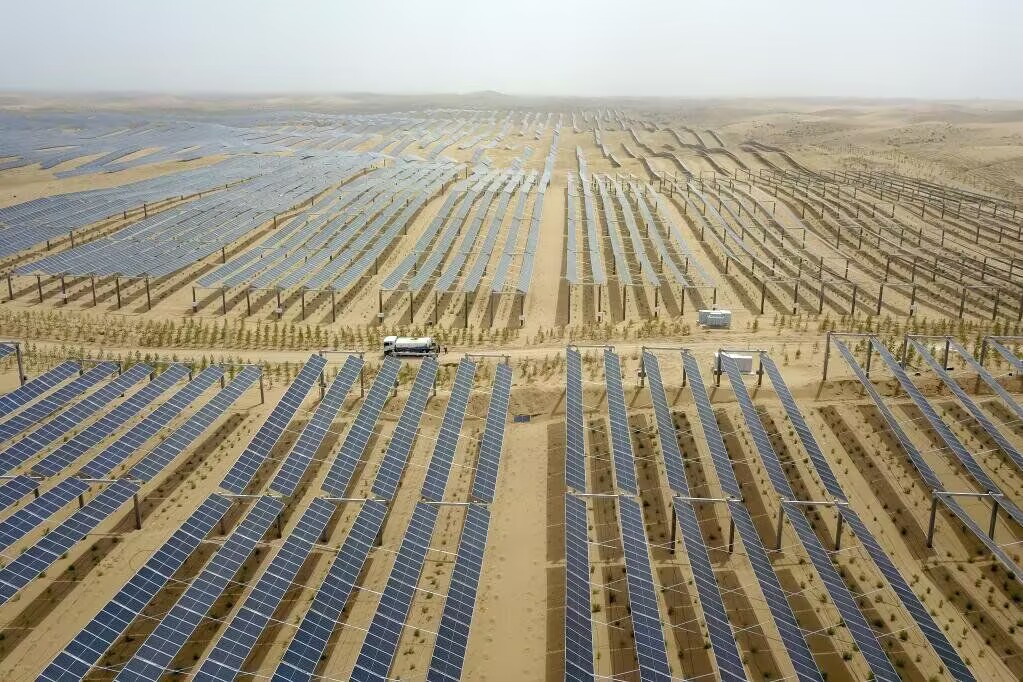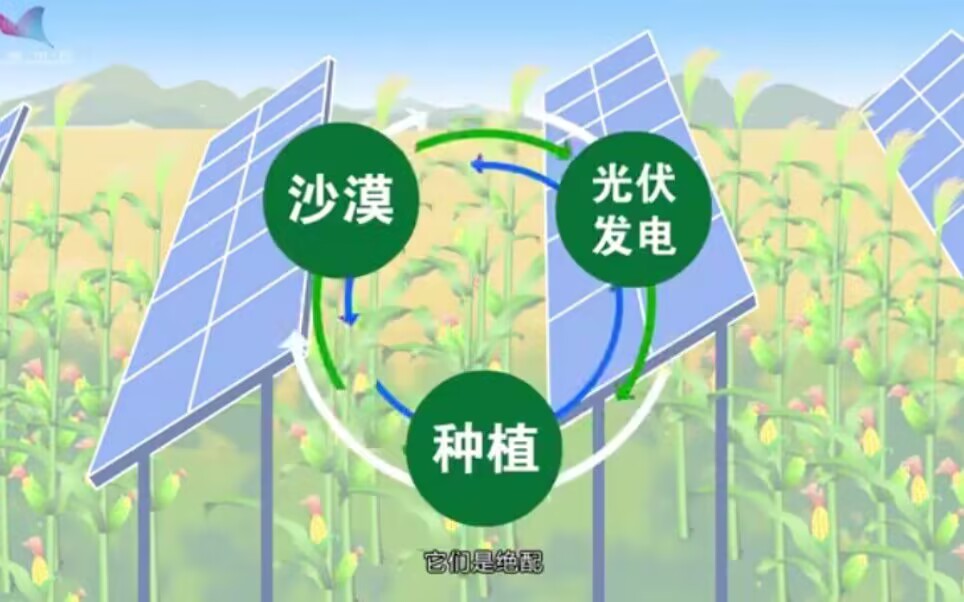Most of Saudi Arabia is desert, so it faces serious problems of water shortage and desertification. China has employed technological methods and has taken green development approaches to combat desertification. The country is utilizing solar power in deserts not only to generate renewable energy, but also to create opportunities for modern agricultural production by establishing green areas. Planting shrubs under photovoltaic panels protects the land from wind and sand erosion. The panels help protect plants from strong wind and water evaporation. The basic principle of photovoltaic sand control is to set up photovoltaic power stations in desert areas, use solar energy to generate electricity, and inhibit sand and dust activities in desert areas by blocking sunlight, reducing wind speed and increasing surface temperature, so as to prevent desertification.
The basic principle of photovoltaic sand control is to set up photovoltaic power stations in desert areas, use solar energy to generate electricity, and inhibit sand and dust activities in desert areas by blocking sunlight, reducing wind speed and increasing surface temperature, so as to prevent desertification.
This measure is very suitable for desert areas, photovoltaic module panels to shield direct sunlight effectively reduce the evaporation of surface water; The shading effect of photovoltaic panels can reduce evaporation by 20% to 30%, and photovoltaic module panels can also effectively reduce wind speed. This can improve the living environment of plants. It is for these reasons that many surface vegetation, including grass, can grow,The appearance of surface vegetation, in turn, contributes to sand fixation and water retention on the surface, and ecological improvement is also beneficial to solar power generation. The dust raised has a great impact on the power generation, and vegetation can reduce the dust raised.
- Eco-environmental Transferability environmental Protection Chineseeco-environmental transferability environmental eco-environmental environmental protection pollution transferability protection chinese measure eco-environmental transferability environmental environmentally environmental protect how can protection environmental agreements provisions emissions